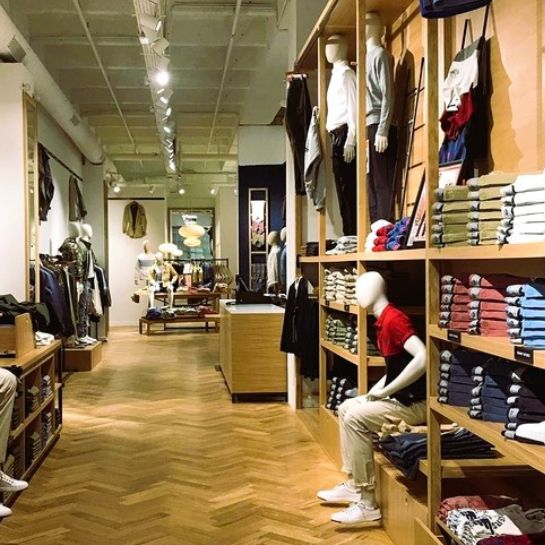23.08.2023
In an era of dynamic changes in shopping patterns, stationary shops are increasingly transforming into community clusters, offering not just products but unique interactive experiences and opportunities for interpersonal connections. This evolution in the design of stores as social hubs is a response to the growing human need for connection and experiences that go beyond mere commercial transactions. Physical stores are evolving into places for meetings, workshops, and charitable endeavors, thus creating distinctive communal spaces.
Traditionally, brick-and-mortar stores were primarily places where customers came to make purchases and then left. However, in today’s world, physical stores are shifting away from this role to become spaces that attract customers through diverse events such as workshops, presentations, exhibitions, and author meet-ups. These initiatives cultivate an atmosphere of openness, encouraging customers to spend more time in the store and engage in social interactions.
The concept of a store as a social hub opens the door to hosting various workshops and lectures. Clothing stores can offer workshops on clothing selection and styling, appealing to customers eager to delve into their fashion interests. Stores with children’s products can organize workshops for parents, teaching them new parenting and childcare skills. Lectures by experts in fields such as health or cuisine can serve as an inspiring addition to the store’s image. From artistic and culinary workshops to sessions focused on healthy lifestyles or programming, the array of possible topics is vast. Such initiatives not only attract individuals with similar interests but also build a positive image of the store as an educational and inspiring space.
Physical stores can also act as centers for charitable and community activities. Partnerships with non-profit organizations, donation drives, and support for local initiatives provide an effective way to engage the local community and make positive contributions. Charitable actions further solidify the store’s reputation as a responsible entity.
Designing stores as social hubs encourages customers to connect not only with the brand but also with other customers. Concepts like open spaces, comfortable seating, cafes, or relaxation corners foster an atmosphere where people naturally strike up conversations and exchange ideas. For both professionals and amateurs, stores can serve as spaces for creative work, experience sharing, and inspiration. Incorporating interactive elements such as touch screens or comment walls can enhance customers’ overall experience.
The concept of a store as a social hub can extend to the realms of culture and art. Stores can collaborate with local artists, organize art exhibitions, concerts, or author evenings. This creates a bridge between the realm of commerce and the cultural sphere, expanding the spectrum of experiences that stores offer to their customers.
Physical stores are evolving to meet changing consumer expectations and needs. Designing stores as social hubs transforms them from mere commercial spaces into places for meetings, social interactions, and education. The introduction of diverse events, relaxation spaces, and innovative technological solutions contributes to the creation of unique locations that bring people together around shared interests, ultimately forming communal spaces. As social hubs become an integral part of the social fabric, designing stores based on this concept opens the door to limitless opportunities for creating valuable experiences for customers. Ultimately, it’s these social interactions that drive modern physical stores in today’s competitive retail environment.

12.02.2026
Dockers is one of the global apparel brands that Ergo Store has supported for years, delivering brick-and-mortar retail spaces across various parts of Europe. What are the most distinctive features of the brand’s store concept, which until 2025 was part of Levi Strauss & Co.?